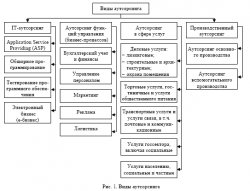Outsourcing In Kazakhstan

 In today ' s world, companies face unprecedented market pressure. Only those organizations that do business in the most efficient way by reducing transaction costs while maintaining the quality of goods and services survive and succeed. Outsourcing is one of the most modern and successful business models for real competitive advantage, as outsourcing is a practical realization of the principle of labour division and cooperation.
In today ' s world, companies face unprecedented market pressure. Only those organizations that do business in the most efficient way by reducing transaction costs while maintaining the quality of goods and services survive and succeed. Outsourcing is one of the most modern and successful business models for real competitive advantage, as outsourcing is a practical realization of the principle of labour division and cooperation.
Outsourcing is translated from external resources in English. This management method is intended to attract external resources. The definitions of outsourcing are quite large, but the essence of simple is to transfer a number of non-profile functions necessary for the full functioning of the business. Outsourcing is that the customer sets the final objectives for the outsourcing, and the methods, means and paths to achieve these objectives depend solely on the perpetrator. In doing so, the outsourcing officer is also responsible for obtaining the required results, which is always clear in the contract.
To date, there are several types of outsourcing in world practice (Figure 1) [1].
Depending on the volume of the outsourced functions, each outsourcing type may be classified as complete (complex) or partial (functional). The figure shows the model reasons for the outsourcing.
Outsourcing principles:
- - I give myself what I can do better than others, and I give the outsider what he does better than others;
- - Make the organization more competitive by maintaining a focus on key competency;
- - To achieve cost-effectiveness and cost-effectiveness;
- Access to special resources or opportunities;
- - To promote entrepreneurship in small organizations.